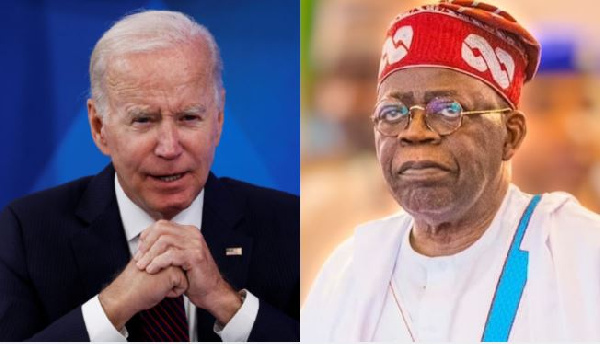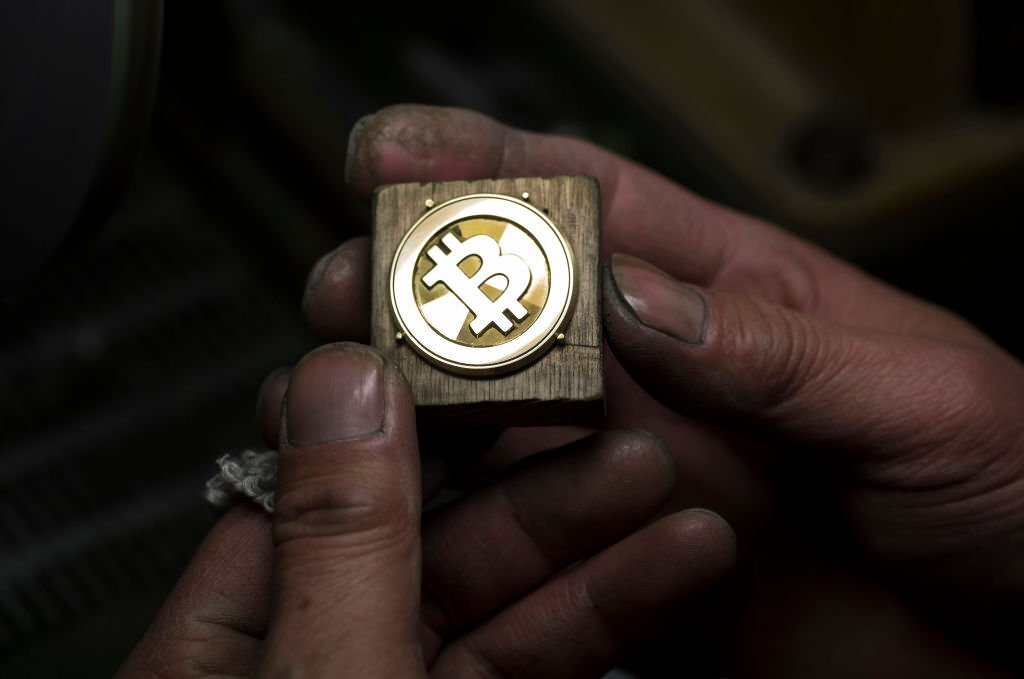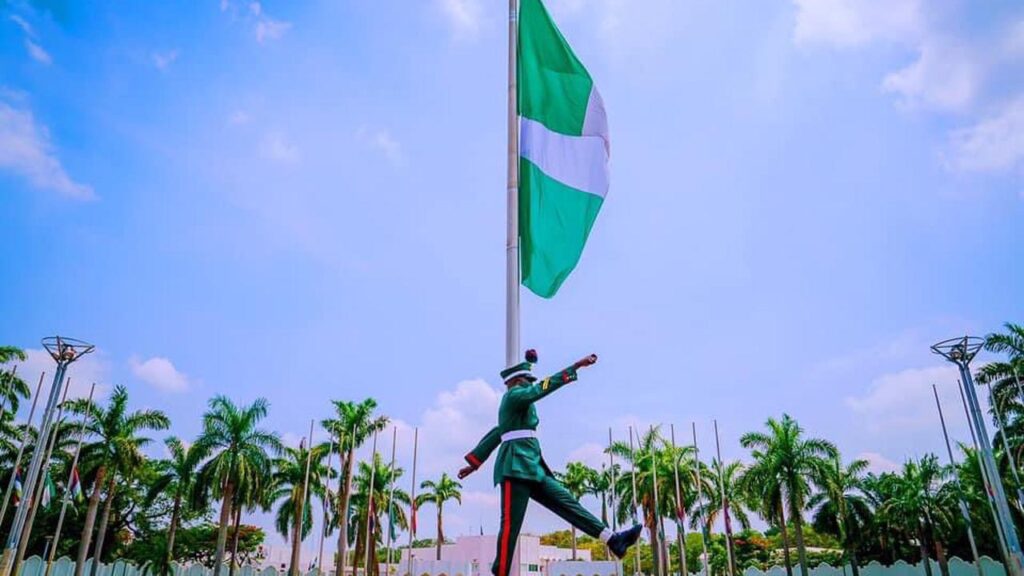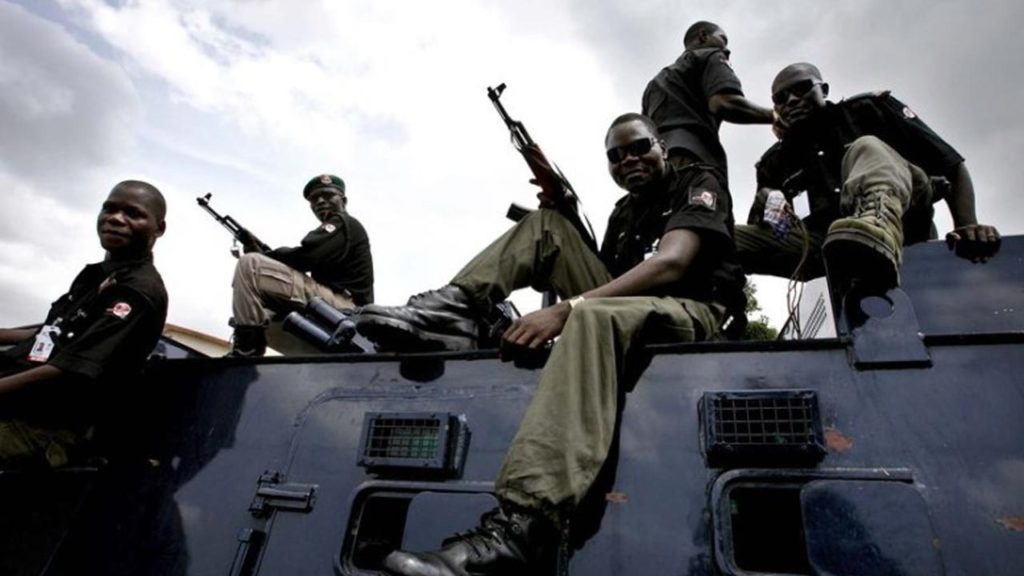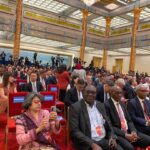
Around the world, leaders of nations use the occasion of the New Year to pass on powerful messages and signal what their priorities would be for the next 12 months. Some prefer to make their declarations on eve; others wait till morning hours, after the fireworks and revelry of the night had quietened.
In a world that has become vulnerable to sundry afflictions – wars, pandemics, economic and climatic blights, New Year messages provide an opportunity to reflect and take stock, rally citizens for greater patriotism and hard work. Others, whose predilection is war-mongering, use it as battle cry to indicate where their arsenals would aim.
For the French President, Emmanuel Macron, “2024 is a year of determination, choices, recovery, pride. In fact, a year of hope.” Indeed, French pride was bloodied and humbled in 2023, abroad and at home. In the Maghreb, the vestiges of the French as a global empire evaporated, as former colonies of Mali, Niger and Burkina Faso decided to end the romance. Young soldiers from these countries decided to put an end to decades-old pandering to the French in economic and military matters. That was a heavy blow to French pride and Macron suffered personal heartache, even as restiveness characterized the year at home.
France is looking to softer matters such as the Paris Olympics Games, to reassert a deflated ego. Macron mentioned the re-opening of Notre-Dame Cathedral in the New Year as another source of fillip. On April 15, 2019, fire engulfed the centuries-old cathedral. The edifice is one of notable monuments in Europe.
For Russia and Vladimir Putin, the country has an ongoing war with Ukraine and without any explicit reference to it, the New Year message was for showering praises on the military that has sustained the onslaught.
Canvassing unity, Putin christened 2024 as the “year for the family”. He said: “We have repeatedly proved that we are able to solve the most difficult tasks and will never back down, because there is no force that can separate us.” By implication, included as family are Russian people in other sovereign countries, such as Ukraine. Putin dreams of the former Russian federation and is working hard to reunite by force.
Last week, Putin deployed 90 deadly drone attacks on Ukraine’s Kyiv and Kharkiv. Just to underscore that New Year messages are very potent. They are not guess-work and empty rhetoric.
For President Xi Jinping, 2024 is about uniting China Mainland with the Islands, not different from the Russian expansionist and nationalistic plan. China is comfortable at home, economically and not intimidated abroad. So, she could afford to seek territories abroad, especially Taiwan. Of course, this is where China will always expect to encounter head-on collision with the United States. The U.S. prefers to have an autonomous Taiwan that enjoys sovereign powers. But China is unrelenting.
Hear Xi: “We will continue to support Hong Kong and Macao in harnessing their distinctive strengths, better integrating themselves into China’s overall development, and securing long-term prosperity and stability. China will surely be re-unified, and all Chinese on both sides of the Taiwan Strait should be bound by a common sense of purpose and share in the glory of the rejuvenation of the Chinese nation.”
With such rhetoric from Russia and China, the world could do with more tumult in 2024 than it did in 2023. The more polarized the world gets, the greater discomfort for smaller countries that are struggling with domestic challenges.
In his New Year message, Noth Korea’s Kim Jong Un, characteristically promised closer ties with China. He also charged the military to ‘thoroughly annihilate’ the United States. Familiar vibes from a bellicose dictator, whose pastime is firing and testing missiles across international waters to upset neighbours. Now, he’s talking nuclear.
In reply, South Korea warned Kim not to hasten his own demise. There are enough nuke war-heads to sink that axis. Thanks to the U.S. Rishi Sunak told his British audience that his party will do more for them in the New Year. In a likely election year with polls not favouring him, Sunak decided to launch into campaign rhetoric. He bragged: “We’re getting the economy going. We’ve delivered the biggest tax cut in modern British history. We’re going further to grow our economy by reducing debt, cutting taxes and rewarding hard work, building secure supplies of energy here at home, backing British businesses and delivering world-class education.” Domestic matters are priority.
President Joe Biden of the United States, apparently has too many competing issues calling for his attention. He has an upcoming election to deal with and the polls are not in his favour. The Southern border is bursting with illegal migrants, just as the war in Gaza has reverberated more in the United States than in the Middle East.
What New Year message could such a man give, other than a terse, “we’re coming back, and it’s about time.” Biden is optimistic he would come back next year to continue his idea that “the American people understand that we’re in a better position than any country in the world to lead the world.”
The question of which country has capacity to lead the world at a time like this, is one that should excite scholars of international relations. The world today has turned full circle to pre-1945 era. Many countries are in ruins due to direct wars and from ecological disasters. Hundreds of thousands have been killed (both civilians and military) and millions displaced, with attendant economic costs spread across the globe.
The European Union and member states are on record to have made available over $91 billion in financial, military, humanitarian and refugee assistance to Ukraine. The United States is also reported to have given more than $75 billion in assistance to Ukraine for military, financial and humanitarian support. Another $60 billion is being slowed down by political debates.
For Ukraine, military budgets have increased multiple times since the war began, not to mention economic losses and severe collateral damage to infrastructure. Russia, apart from wasting around $132 billion in direct military expenditure has lost much more in Gross Domestic Product (GDP) and export revenues according to RAND researchers.
If there was to be a world without wars and threats of it, it is possible that more people could attain relatively improved living standards in direct aids and seamless economic partnerships. The barriers inflicted by the Russia-Ukraine war have impacted global energy trade. Some western countries are just coming out of the shock.
For African countries that are commodity dependent, 2024 could be more damning, as global wars are not showing signs of de-escalation. Those countries that rely on grain supplies from Ukraine and Russia are reeling from shortages. According to the UNDP, the most visible impact of the crisis is felt on fuel and food prices, inflation and financial instability. African countries feel this most.
In their New Year messages, some African leaders have also expressed hope that 2024 will be fair to them. We pray so. But the year will rely on painstaking investments that were done in the previous years and the resilience of the economies to confront fresh challenges that were not in the forecasts.
For Cyril Ramaphosa, his New Year message harped on improving the living standard of the people of South Africa. He thus charged his country folks to take stock as the country clocks 30 years of freedom after the dismantling of apartheid rule.
President Ramaphosa said despite the challenges, in 30 years, nearly nine out of 10 households live in formal dwellings. Close to 95 per cent have access to electricity. Eight out of 10 households have access to public water. He said the records were obtained from the census conducted in 2022.
President Akufo Ado promised to secure the future of Ghanaians through collective, conscious efforts from citizens. He admitted the country is not out of the woods, but is confident that with hard work and determination, Ghana will make it. Ghana is very much in the woods, perpetually a debtor to IMF. That has a lot to do with the type of politics Ghanaians play, too many political appointees, plus racketeering laced with debilitating corruption, just like in Nigeria.
President Bola Tinubu’s New Year message is also one of hope for a better year. But hope has to be built on truth, without which hope vanishes like morning dew under intense heat.
It is instructive that President Tinubu said he is touched by the misery in the land. He said: “From the boardrooms at Broad Street in Lagos to the main streets of Kano and Nembe Creeks in Bayelsa, I hear the groans of Nigerians who work hard everyday to provide for themselves and their families.”
The New Year message and the promises contained therein are just like the ones Tinubu promised on August 1, 2023. But by December, despite the removal of fuel subsidy and increased revenue, nothing changed for the people. Food inflation went higher, while Mr President and lawmakers went about town in exotic convoys, doing birthday binges amid citizens’ hunger groans.
It was revealed later that members of the Senate and House of Representatives were given N200 million and N100 million each to provide food palliatives for their constituents in December, courtesy of the Presidency. Many lawmakers did not disclose the details until the story leaked. Others distributed few items to their cronies, without acknowledging the source.
Let it be said, that 2024 is going to be tough from available forecasts. Only truthful and sincere leaders, especially in Africa, will fulfill promises declared in their New Year messages. Citizens are watching!

